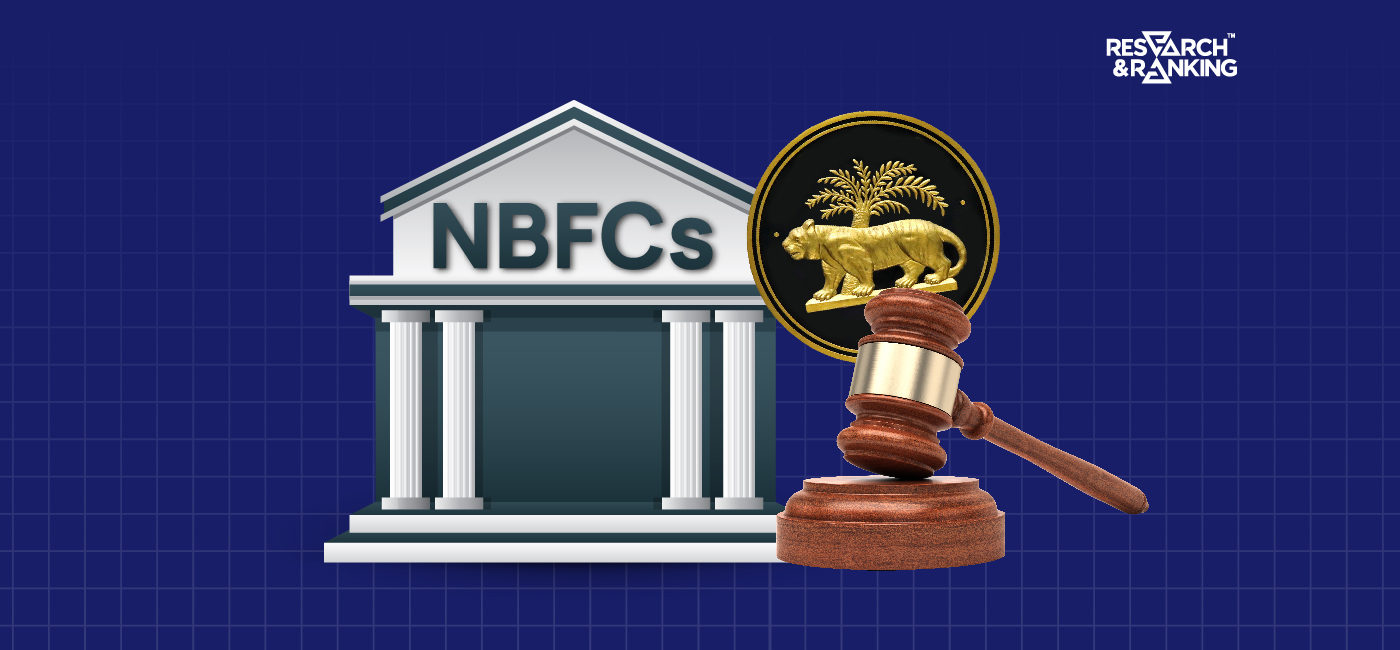The Reserve Bank of India (RBI) has been tightening its grip on some non-banking financial companies (NBFCs) and fintechs in the past few months, imposing various penalties, restrictions, and bans on their activities.
The RBI’s actions have raised eyebrows in the industry, as some of these are among the leading players in the financial sector, including Paytm Payments Bank, IIFL Finance, JM Financial, Bajaj Finance, and M&M Finance, catering to millions of customers across the country.
Why is RBI concerned?
According to Shymala Gopinath, former Deputy Governor of RBI, the central bank may have been alarmed by the aggressive growth in the unsecured loans of some entities, which could threaten the financial system’s stability. She also said that the RBI strengthened its supervision after the global financial crisis 2008 and has been more proactive in addressing the issues and concerns in the financial space.
The practice of easy unsecured loans has led to some NBFCs and fintech reporting a spike in their non-performing assets (NPAs) or bad loans; 5.4% of borrowers with at least one unsecured loan defaulted in April-June 2023, compared to 4.2% in the corresponding period last year. This could erode companies’ capital and profitability.
Aseem Dhru, Chief Executive Officer and Managing Director of SBFC, a fintech, said that the RBI has been sending a clear message to the industry that it will not tolerate any deviation from the regulatory norms and standards and will come down heavily on anything that is not in line. He added that the RBI’s action could also be a wake-up call for the fintechs and NBFCs to improve their governance, transparency, and customer protection.
Actions RBI Has Been Taking
The RBI’s regulatory hammer may positively impact the overall financial sector, as it could weed out the bad actors, enhance consumers’ trust and confidence, and promote a level playing field for the players.
- The central bank has taken strict action against JM Financial Products, prohibiting it from lending against shares and debentures and from loans related to the IPO of shares.
- RBI ordered IIFL Finance to cease giving or approving gold loans immediately, expressing “supervisory concerns” about the company’s gold loan business.
- On January 31, the RBI put business limitations on Paytm Payments Bank, accusing it of repeatedly breaking norms and rules.
- On November 15, the RBI instructed Bajaj Finance to stop giving or approving loans under its two loan products, ‘eCOM’ and ‘Insta EMI Card,’ immediately.
Consequences of the RBI Crackdown
Such RBI actions could slow down the growth and innovation of fintech and NBFCs, reduce credit availability and affordability for underserved segments, and create uncertainty and confusion among stakeholders. The RBI’s crackdown may have a mixed impact on the industry and the consumers.
On the positive side, it may help improve the quality and standards of the NBFCs and fintechs and ensure they comply with the regulatory norms and guidelines. It may also help to protect the interests and rights of the customers and prevent them from falling prey to predatory or fraudulent lenders.
Conclusion
The NBFCs and fintechs play a vital role in the Indian financial landscape, as they provide access to finance, products, and services to millions of people who are excluded or underserved by the traditional banking system.
They also contribute to the country’s digital transformation, financial inclusion, and economic development. Therefore, the RBI and the industry must work together to balance regulation and innovation and ensure that NBFCs and fintechs operate responsibly, sustainably, and customer-centricly.
*Disclaimer Note: The securities quoted, if any, are for illustration only and are not recommendatory. This article is for education purposes only and shall not be considerea d a recommendation or investment advice by Research & Ranking. We will not be liable for any losses that may occur. Investment in securities market are subject to market risks. Read all the related documents carefully before investing. Registration granted by SEBI, membership of BASL, and certification from NISM in no way guarantee the performance of the intermediary or provide any assurance of returns to investors.
Read More: How To Make Passive Income
Which NBFCs are affected by the RBI’s crackdown?
The RBI has restricted various companies, including Paytm Payments Bank, IIFL Finance, JM Financial Products, Bajaj Finance, and M&M Finance. These restrictions prohibit issuing certain types of loans, impose monetary penalties, and require compliance with prudential norms.
Why did the RBI take these actions?
The RBI may have been alarmed by the aggressive growth in some entities' unsecured loans, which could threaten the system’s financial stability. The RBI may have also found some violations of norms and non-compliance with rules by these entities, which could affect the interests of the depositors and customers.
What are the implications of the RBI’s crackdown on the NBFC sector?
The RBI’s crackdown could have a mixed impact on the NBFC sector. On one hand, it could improve the governance, transparency, and accountability of the NBFCs and enhance their resilience and credibility. On the other hand, it could also hamper the growth, innovation, and competitiveness of the NBFCs and reduce their access to funds and customers.
How useful was this post?
Click on a star to rate it!
Average rating 0 / 5. Vote count: 0
No votes so far! Be the first to rate this post.
I’m Archana R. Chettiar, an experienced content creator with
an affinity for writing on personal finance and other financial content. I
love to write on equity investing, retirement, managing money, and more.
-
Archana Chettiarhttps://www.equentis.com/blog/author/archana/
-
Archana Chettiarhttps://www.equentis.com/blog/author/archana/
-
Archana Chettiarhttps://www.equentis.com/blog/author/archana/
-
Archana Chettiarhttps://www.equentis.com/blog/author/archana/

